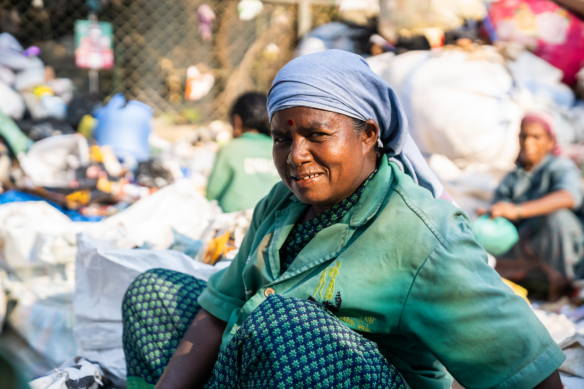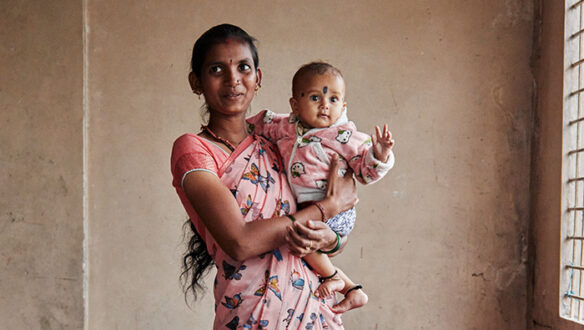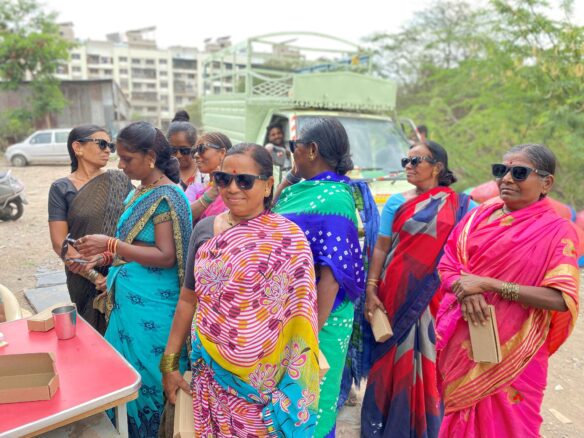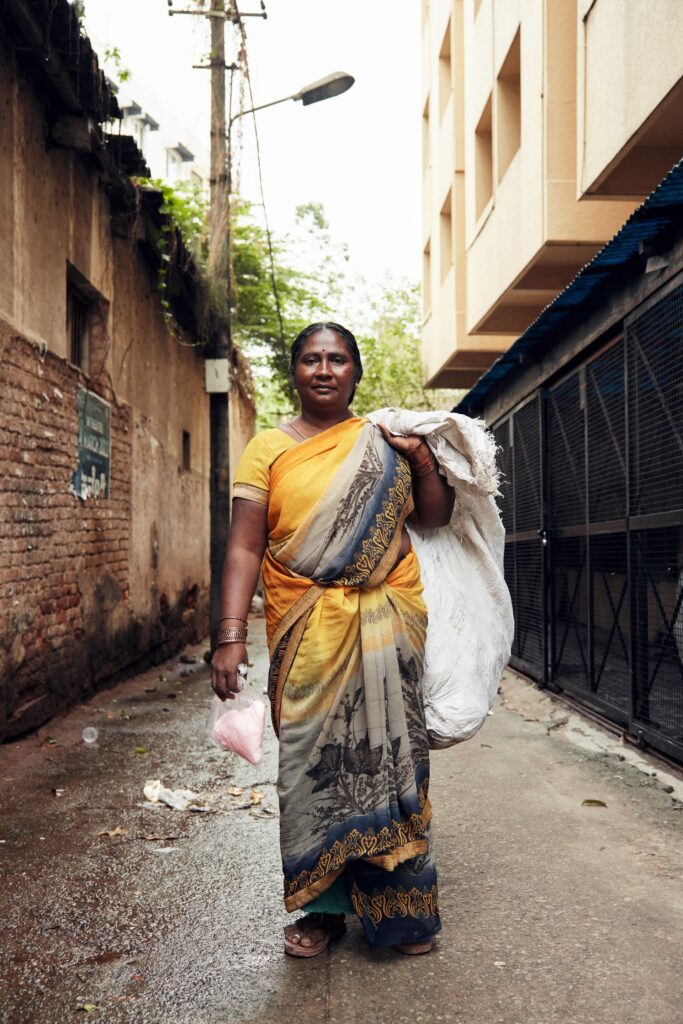
Circularity is one piece of the puzzle in creating a planet positive fashion future. And as the fashion industry is leaving “take, make, waste” behind, there is an increasing demand for recycled raw materials. There are multiple challenges in this, one is making sure that the materials are sustainably sourced, not only from a planet perspective but also making sure that the value chains are socially inclusive. Many planet friendly initiatives tend to forget the social implications they bring, some initiatives even further marginalize the people currently making a living on contributing to the circular economy.
H&M Foundation working to create inclusive societies in communities where fashion is made, which brought us to India. We saw a gap here, where we could catalyse inclusive circularity – equipping informal waste pickers to lift themselves out of poverty, bringing them closer to the formal sector, while providing the textile industry with sustainably sourced recycled materials.
In India alone, 62 million tons of waste is generated annually, and only 19% of the waste is processed and treated, the rest ends up in landfills. The largest driving force behind recycling are the roughly 1.5-4 million informal waste pickers, who roam the streets and sort through trash, identifying the materials that have the potential to be sold and upcycled. They are crucial to the waste management system and key players in the circular economy, yet they live in poverty, suffer harassment and have little linkage to social support services.
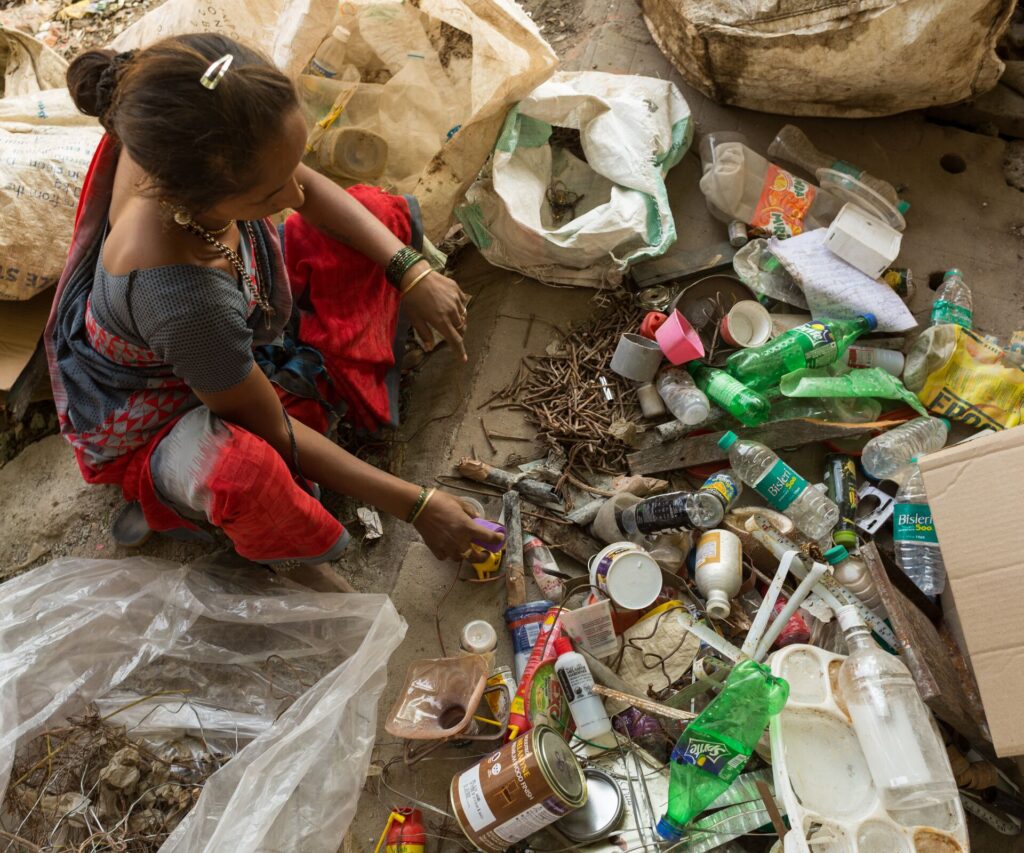
Collective efforts to enable holistic systems change
Many waste pickers have to endure a difficult everyday reality including regular harassment and extortion – not to mention the health hazards they are subjected to when handling waste. Further, many are self-employed workers with no formal legal relationship with the municipality or the recyclable traders and may completely lack access to social security benefits.
In 2020 we initiated Saamuhika Shakti a multi-actor initiative with the goal to propel waste pickers from the fringes of society to become integral and recognised as parts of it. In order to succeed we involved the waste picker community from the start, helping us define the different intervention areas of our holistic approach where we bring together diverse partners from different sectors, using the Collective Impact method. All partners are bringing their expertise into the collective effort, working towards common goals. Working together will result in lasting impact at a scale beyond what any actor could achieve alone.
If challenges related to the waste pickers lives and the waste sector can be addressed, waste pickers have the potential to be a key player in a global circular system – and could not only contribute to the health and state of our planet, but also uplift themselves out of poverty.
H&M Foundation has brought together eleven local partners who are working closely to support the waste picker community in various aspects – that the waste pickers themselves have identified – such as safe working conditions, access to social services and good quality education, water and sanitation, up-skilling or access to alternative jobs, innovations in waste management streams, shifting the perceptions around waste pickers, as well as increasing economic opportunities. The initiative has a strong focus on creating equity, addressing the basic needs of marginalized groups within the waste picker community, such as women and girls.
Welcoming a new phase
Saamuhika Shakti’s first phase, running 2020-2023, covered both economic aspects such as livelihoods, as well as social aspects like education, health, housing, water and sanitation etc. For instance, 2,850 waste pickers and family members availed social security benefits through Hasiru Dala, 5,900 people gained access to quality water, sanitation and hygiene services through WaterAid India and Save the Children India gave 11,000 children from waste picking communities access to quality basic education.
Importantly, it also focused on the critical aspect of bringing more recognition of informal waste pickers. Our partner BBC Media Action launched “Invaluables” – a communication initiative designed to shift perceptions about waste picking and informal waste pickers, reaching 10.5 million people in Bengaluru.
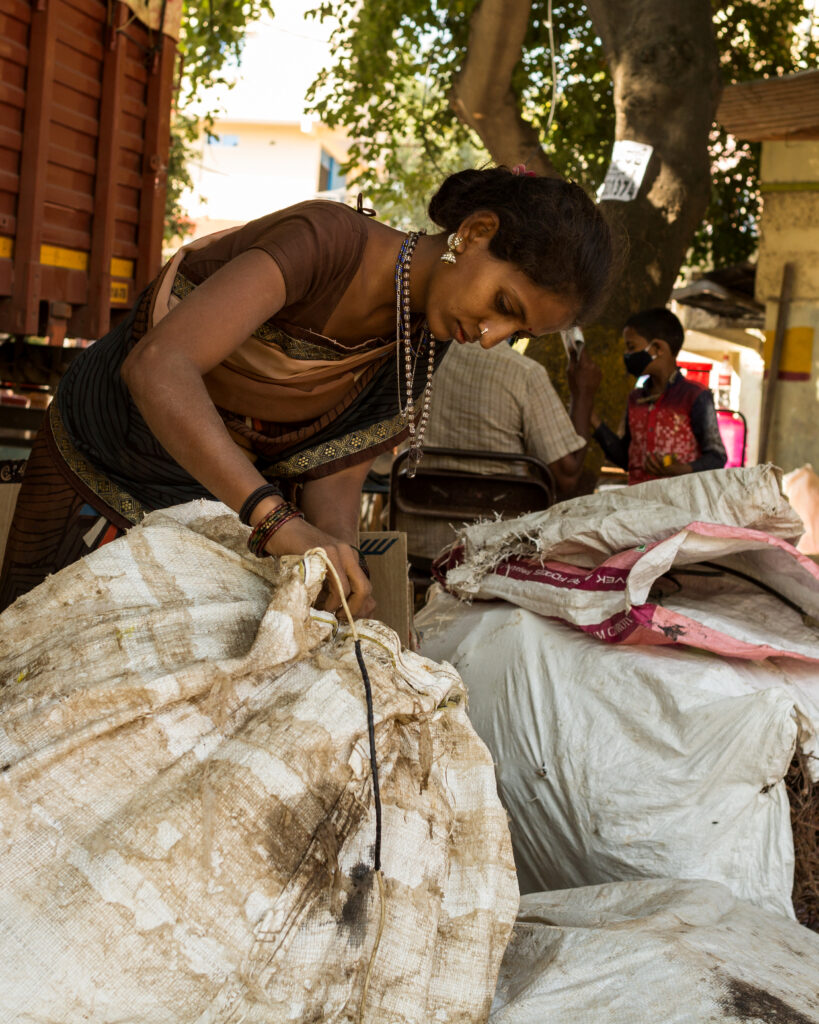
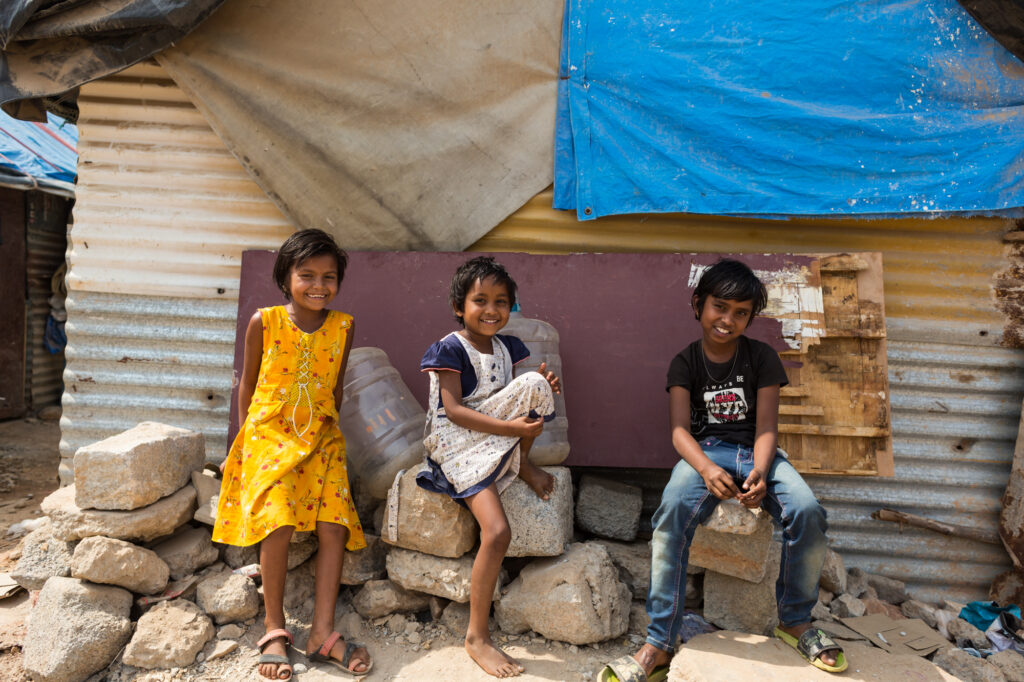
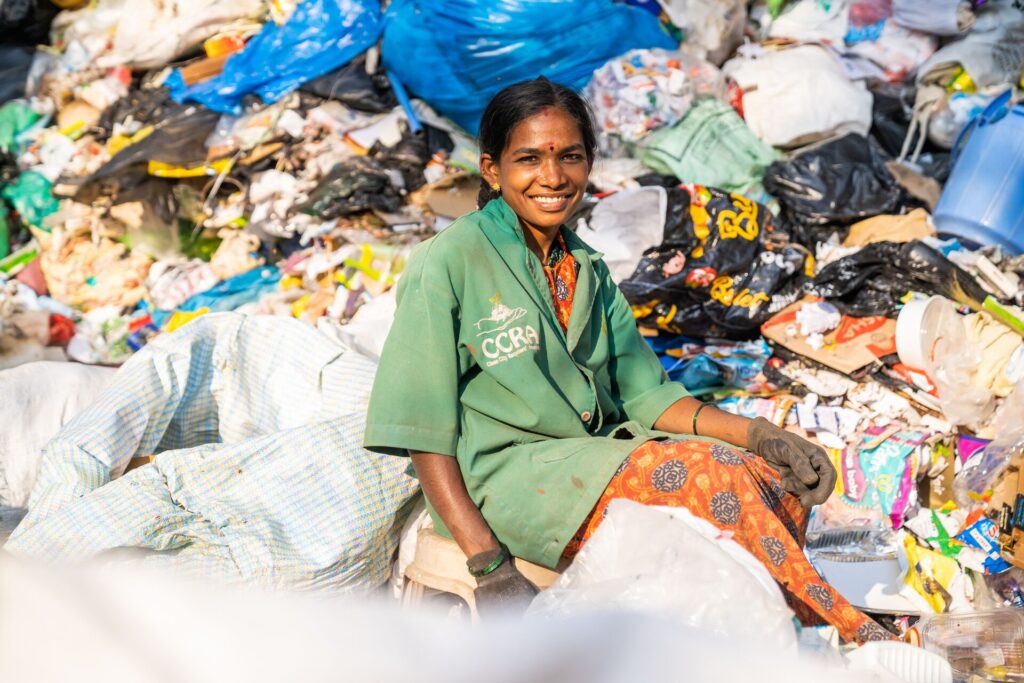
In 2024 a second phase was initiated. Building on learnings from the first phase, all partners have hard coded collaboration into the design of the project. Areas of collaboration and joint key performance indicators have been co-created with a promise to take the initiative to new heights.
As we embark on Phase 2, we also welcome on board Sattva as the independent backbone organisation as well as two new implementing partners; Sparsha and Udhyam Learning Foundation. Sparsha will work to further strengthen Saamuhika Shakti’s work with the children of informal waste pickers. Udhyam will support the 200 plus micro-entrepreneurs created during Phase 1 from among the waste picker community, and look to co-create solutions to ensure these entrepreneurs continue on the path of entrepreneurship.
Another focus will be to scale up circular textile waste management models together with Circular Apparel Innovation Factory and Enviu. The aim is to create formal jobs and impact hundreds of livelihoods while at the same time divert hundreds of thousands of tonnes of textile waste from landfills. BBC Media Action will also continue their work to make people of Bengaluru recognise and respect the value of waste picking as well as making waste pickers themselves cultivate a feeling of dignity, respect, and professional pride.
The partners
- H&M Foundation – Initiator and funder of Saamuhika Shakti
- Sattva – Operates as a local backbone organization that coordinates the initiative
- BBC Media Action – Drives a perception change program, to improve professional pride among waste pickers and encourage Bengaluru’s general population to respect and value waste picking.
- Sambhav Foundation – Offers up-skilling and supports alternative livelihood options – either within the waste management value chain or outside it. CARE India works to improve the knowledge of saving money, opening bank accounts, learning basic computer functions and expanding their digital literacy. Sambhav Foundation aims to improve the earning potential of waste pickers through skill development initiatives and employment support.
- Circular Apparel Innovation Factory and Enviu – Recovers and reclaims value from textile waste while creating green and sustained livelihoods for the informal waste pickers.
- Hasiru Dala – Improves linkages to government schemes, to enable access to basic services; and runs programs to reduce substance abuse and domestic violence in waste picker households. They are also developing user centric tools & equipment to improve working conditions.
- Save the Children India – Improves access to quality education, for example through mobile learning centers (buses) that visit the communities, to enable social mobility for children of waste pickers
- Social Alpha – Develops new waste streams by finding and supporting innovations that accelerate waste management in India, while increasing and improving the stability of waste picker incomes.
- WaterAid India – Offers affordable access to WASH facilities for waste picker households, with a focus on clean drinking water. WaterAid also trains the community to take on the ownership of the infrastructure developed in the communities.
- Sparsha – Focus on interventions towards children’s education, holistic development and skilling, as well as strengthen institutional and teacher capacities
- Udhyam Learning Foundation – Supports the 200 plus micro-entrepreneurs created during Phase 1 from among the waste picker community, and look to co-create solutions to ensure these entrepreneurs continue on the path of entrepreneurship.
The impact of the initiative is externally evaluated by 3ie.
More in-depth information about the project can be found at saamuhikashakti.org.
